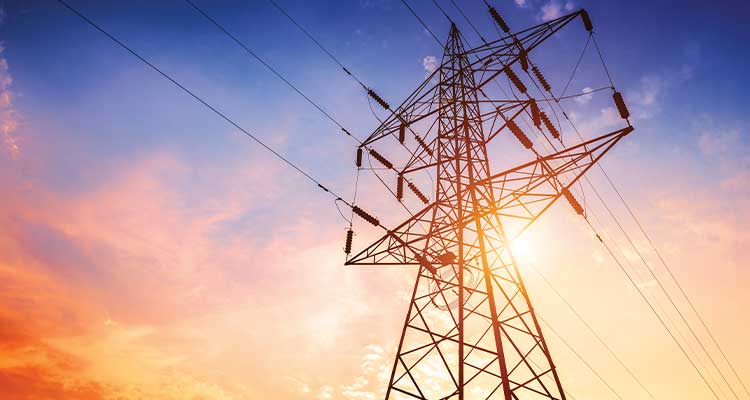
The end of Russian commodity imports: Implications for the UK energy transition. By Brian Crotty
January 1, 2023 marked the end of an era of Russian energy commodity imports in the UK, with a ban on Russian liquefied natural gas coming into effect. This announcement follows earlier restrictions on imports of Russian coal, oil and raw materials into the UK, in line with the global sanctions effort against Russia
Energy security has become a key priority for policymakers since the advent of the Russia-Ukraine war, and has highlighted the importance of securing energy supply chains to combat disruption. While the UK relies on Russian energy to a lesser extent than other European countries (in 2021, imports from Russia made up four percent of gas used in the UK, nine percent of oil and 27 percent of coal), it is not alone in needing to reassess its energy security priorities as a consequence of market volatility.
Within weeks of the Russian invasion of Ukraine, the UK government signaled plans to secure and acquire new sources of hydrocarbons in the North Sea region – which at first glance appears to directly contradict efforts to drive the energy transition forward in support of 2050 net-zero goals. However, the situation is not necessarily as counter-intuitive as it seems, particularly from a medium- to long-term perspective. Here are some things to keep in mind.
The new energy security paradigm
The events of the last 12 months have posed challenging tradeoffs between sustainability and energy security for the public and private sector alike. The UK government, alongside global contemporaries, is now crucially aware of the need for redundancy and diversity of supply in energy systems. In response to energy price volatility, countries are reassessing their supply chains and competing on a global level for energy commodities – as they now need to balance security with affordability, in addition to sustainability.
This state of affairs has been irrevocably shifted by the Russia-Ukraine conflict. While the US shale revolution reduced the global emphasis on energy security as a consequence of the availability of cheap energy, this has now inverted. Geopolitical considerations are now highly visible for stakeholders across the energy value chain, and with self-sufficiency a critical issue, they can no longer afford to focus exclusively on sustainability as the priority.
Ultimately, energy security is about eliminating reliance on hydrocarbons in the long term. While the short-term implication is increased domestic production of oil, coal and natural gas, efforts such as the UK’s North Sea Transition Deal aim to accelerate the energy transition in order to reduce reliance on overseas imports. Commodity prices will be influenced by these shifts, emphasizing the importance of access to up-to-date, trusted information and business intelligence on trends and price movements.
Driving self-sufficiency with renewables
The shift to sustainable energy sources can however drive energy security efforts forwards, particularly in the medium- and long-term. Although coal and natural gas together account for 59 percent of global power generation, the share of renewables continues to increase and has now reached 13 percent, overtaking nuclear power. Last year, the UK generated a record amount of electricity from renewable sources with 40 percent derived from solar, wind, biomass and hydropower. Indeed, in 2022 the UK became a net exporter of electricity for the first time in over a decade, highlighting the scale of the progress made.
Why is this the case? The economics now make sense in a way they have not done previously. In recent years, we have reached an inflection point where renewables are now competitive on a commercial basis. This showcases how energy transition and security can intertwine, with renewables enabling greater self-sufficiency and therefore reducing geopolitical risk in energy supply chains.

EVs and the energy transition
The elimination of Russian oil and gas imports may also act as an important catalyst to drive increased Electric Vehicle (EV) adoption. As with other countries, the UK has ambitious electrification plans, aiming to end the sale of new petrol and diesel vehicles by 2030, and for all new cars and vans to be net zero at the tailpipe by 2035.
However, there are a number of considerations where electrification is concerned, from sustainability in the supply chain to material intensity in the manufacturing process. EV production requires significant quantities of electricity currently derived from coal and natural gas – which makes reducing the reliance on oil and natural gas critical to drive a long-term decrease in emissions. The move away from Russian oil is also set to have an impact on petrochemicals. Plastics derived from petrochemicals are used extensively in EVs, and will require increased circularity in order to reduce wastage and the need for ‘virgin’ plastics.
As a result, we should expect to see efforts focused on plastics recycling – both mechanical and chemical – grow in scale. Companies will increasingly look to keep resources in use as long as possible and recover valuable products and materials at the end of life, which will require careful monitoring of related trends data.
Tracking evolving market shifts with data
Amid evolving sanctions and new regulation, keeping up with the pace of change has never been more challenging. Companies across industries need to be able to forecast and quantify the scale and timing of substantial market shifts, from material demand to price benchmarking. In today’s volatile landscape, trusted data and business intelligence have become a significant source of competitive advantage to inform decisions and drive accountability when it comes to the energy transition.
It’s important to note that the full implications of an end to UK-Russian oil and gas imports will take time to understand. However, keeping the above considerations in mind will enable decision makers to mitigate geopolitical risk, and turn crisis into opportunity in the short, medium and long term.
For a list of the sources used in this article, please contact the editor.
Brian Crotty is General Manager, OPIS, a Dow Jones Company, which provides accurate pricing, real-time news and expert analysis across the global fuel supply chain, including the Spot, Wholesale Rack and Retail markets. OPIS and its brands, McCloskey, PetroChem Wire, Axxis and Chemical Market Analytics, enable customers to buy and sell energy commodities with confidence across the globe via easy access to transparent data, expert-level customer support, educational events and energy data solutions.